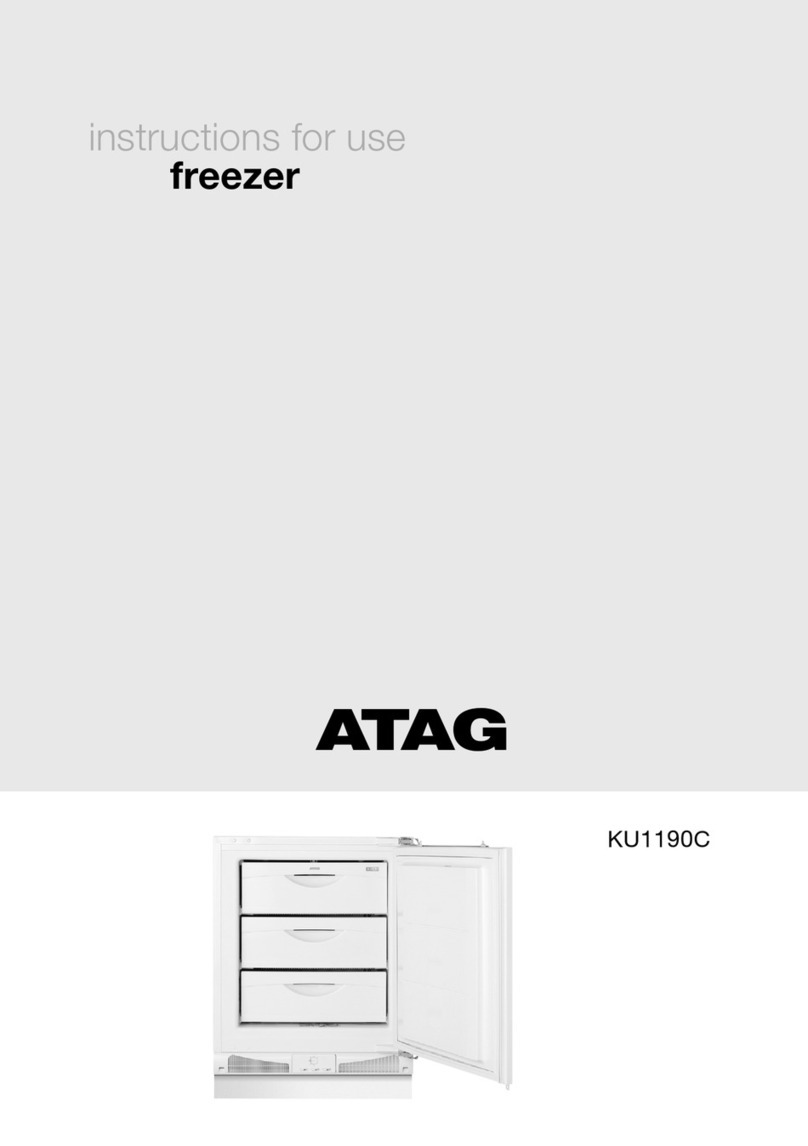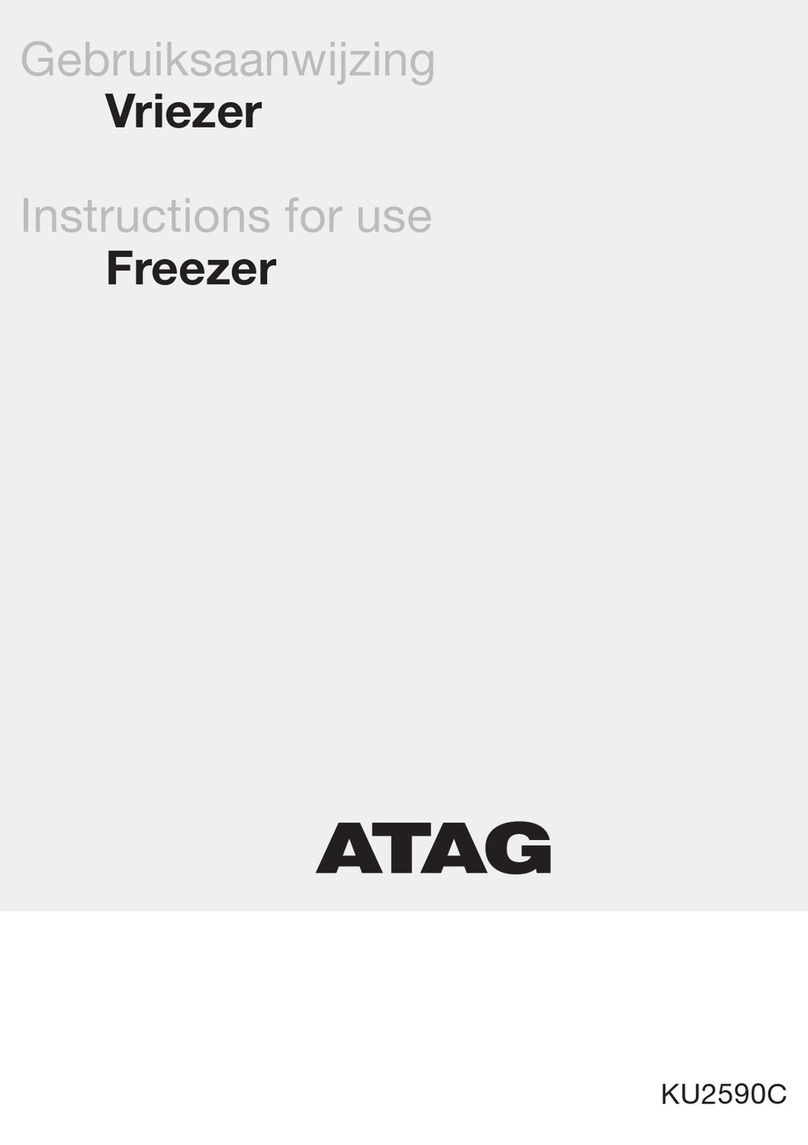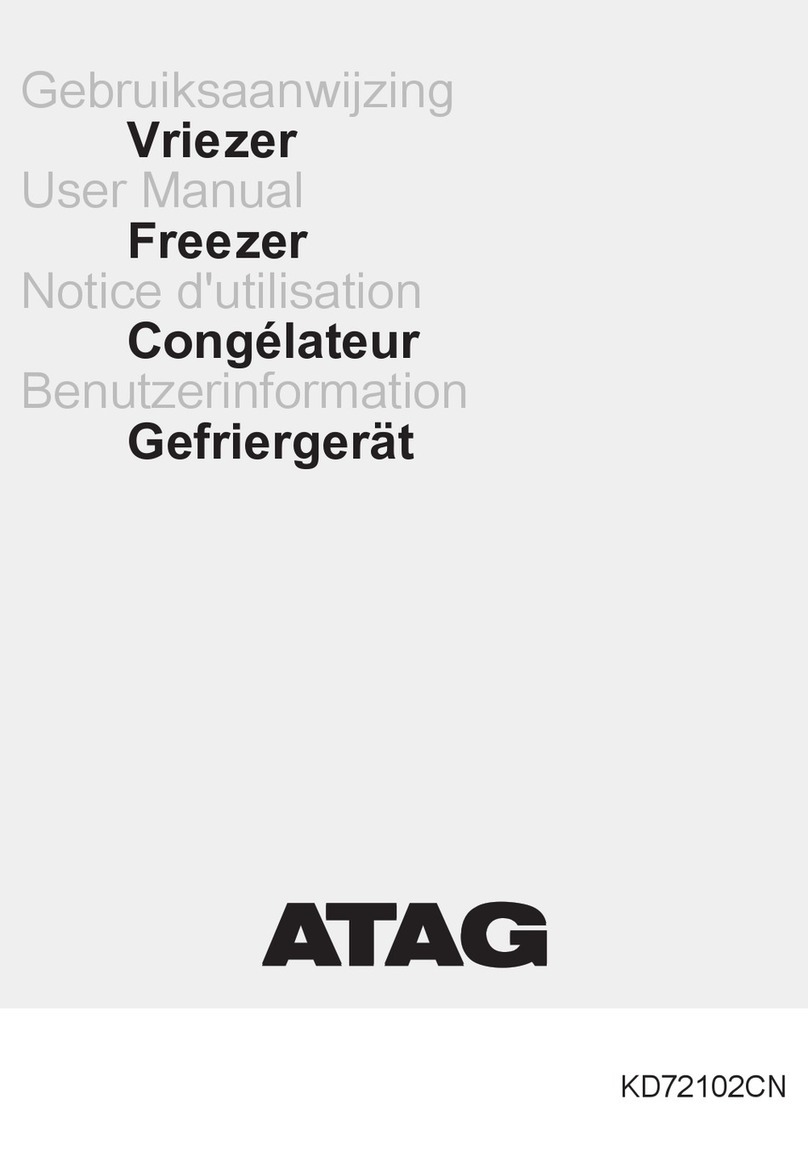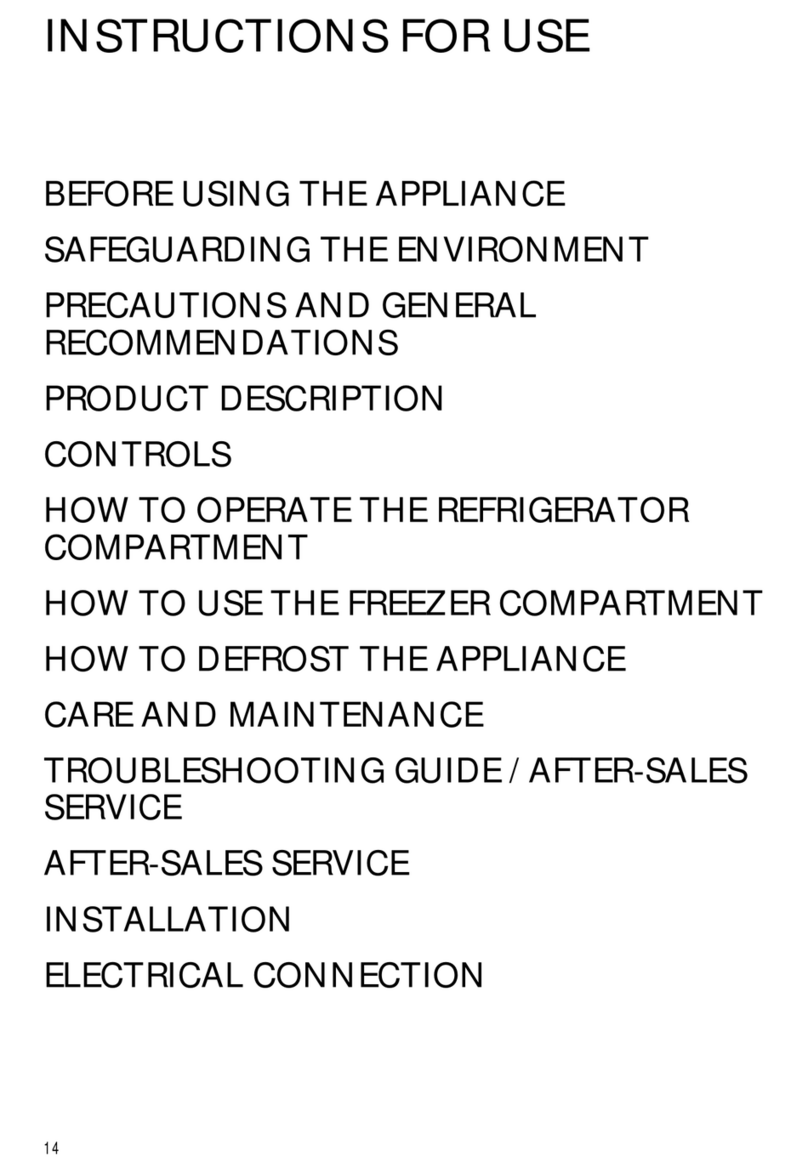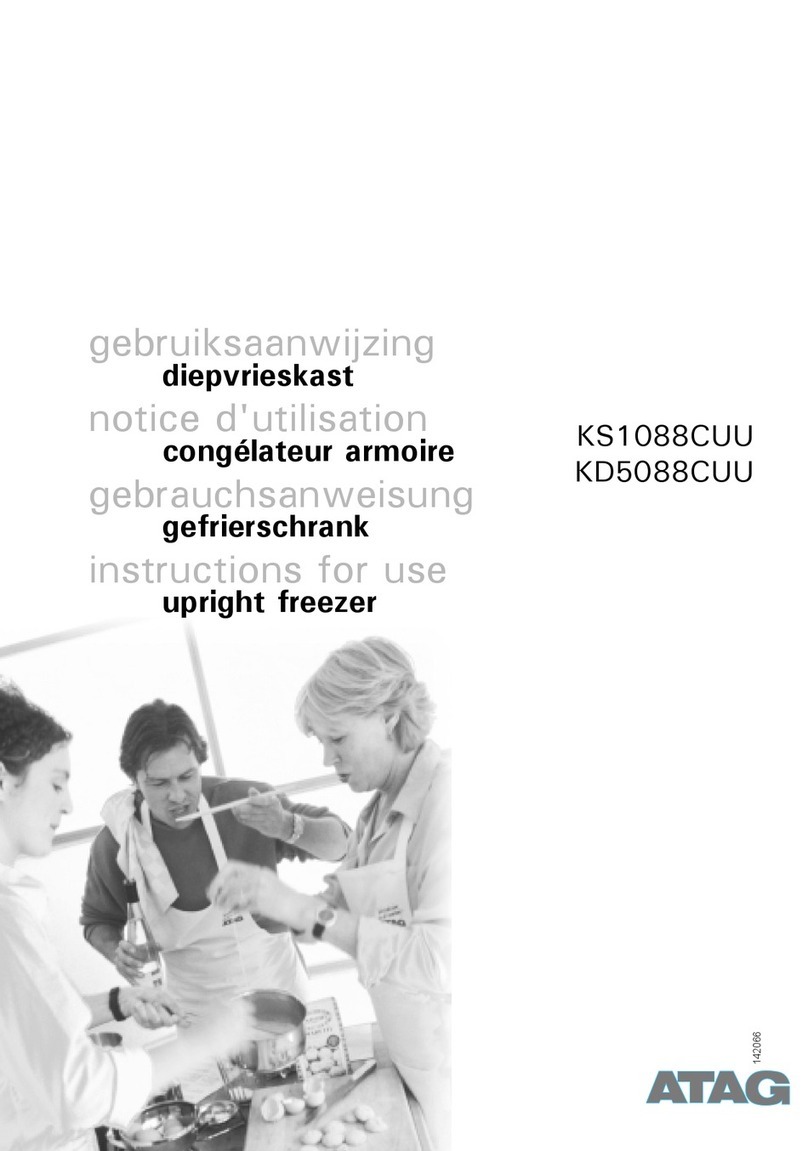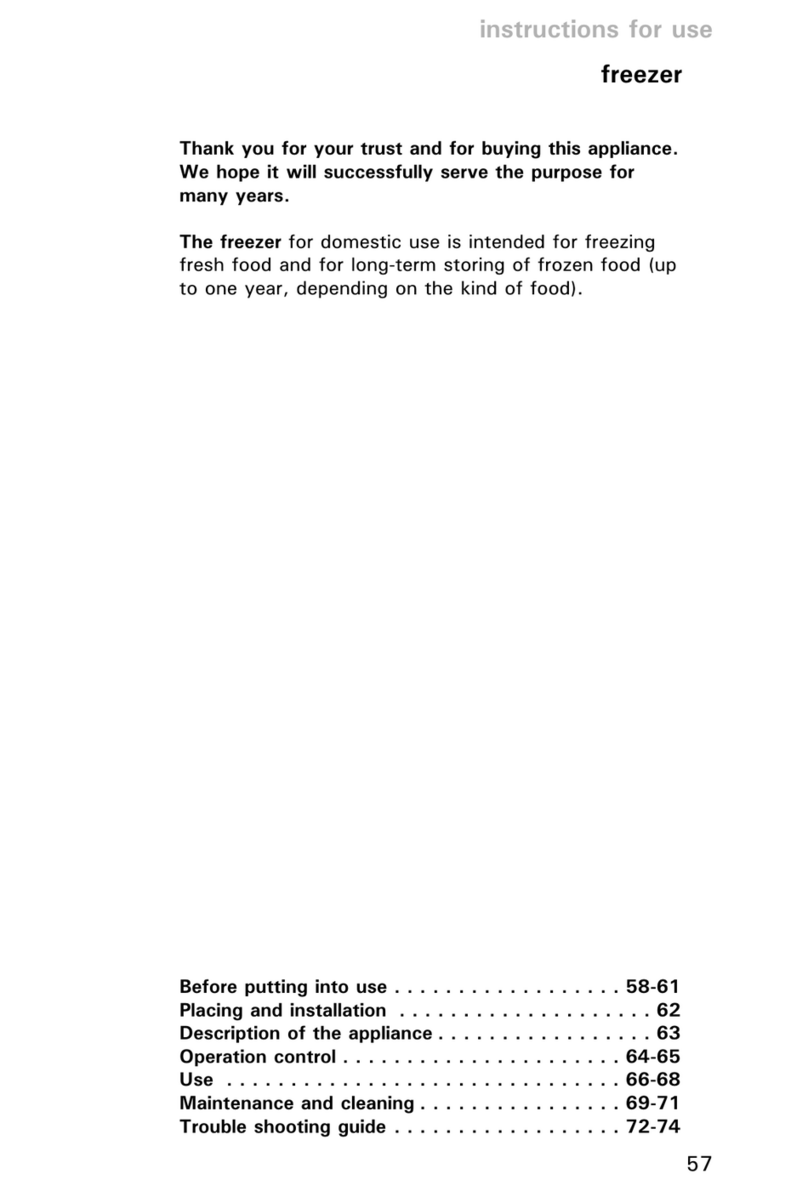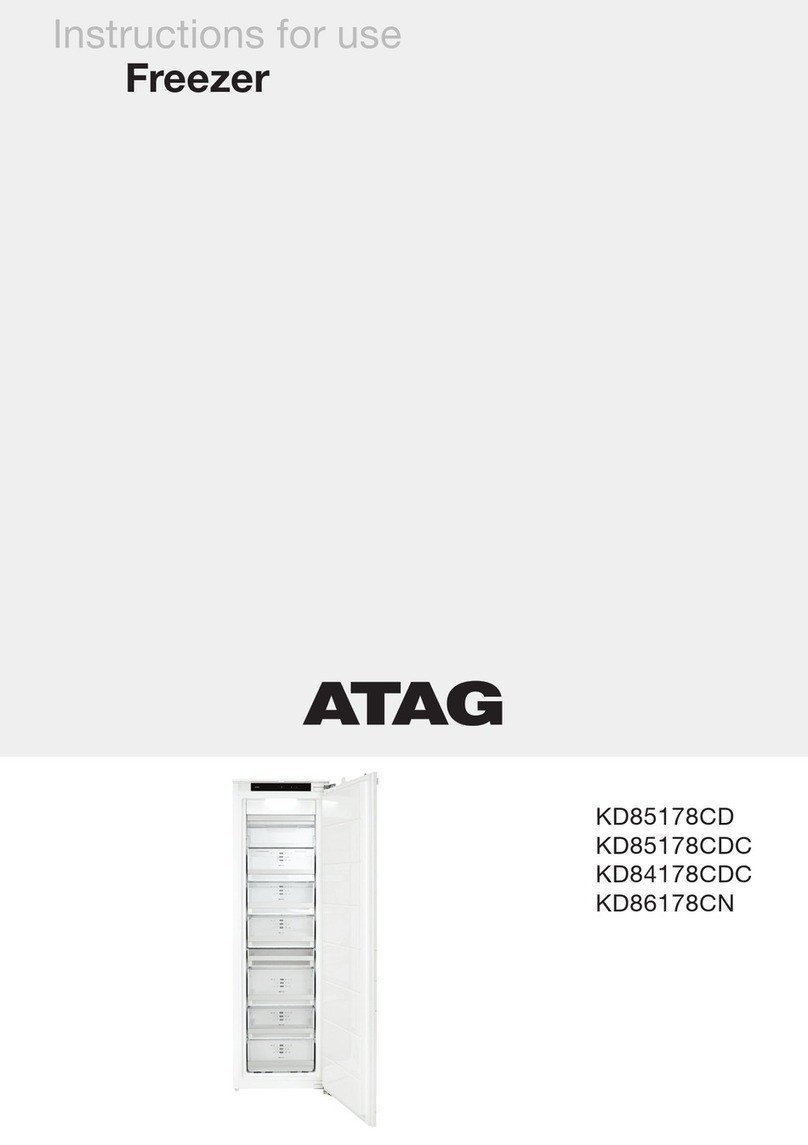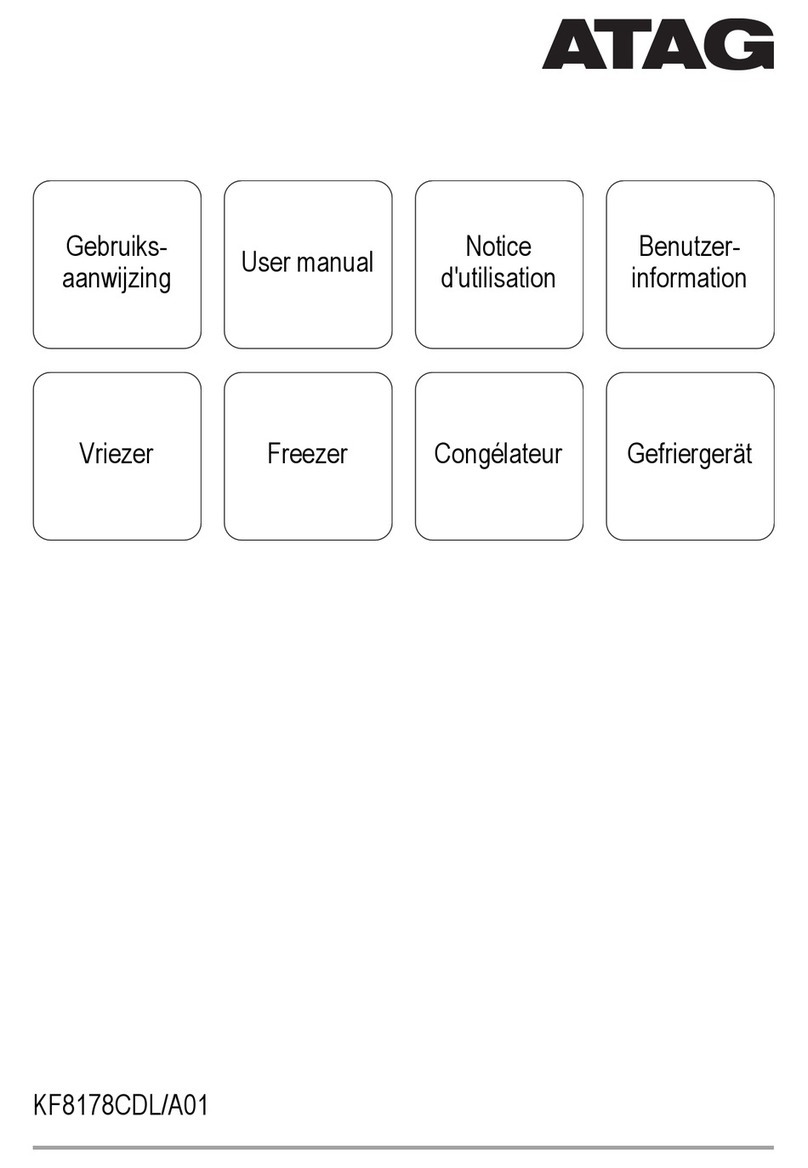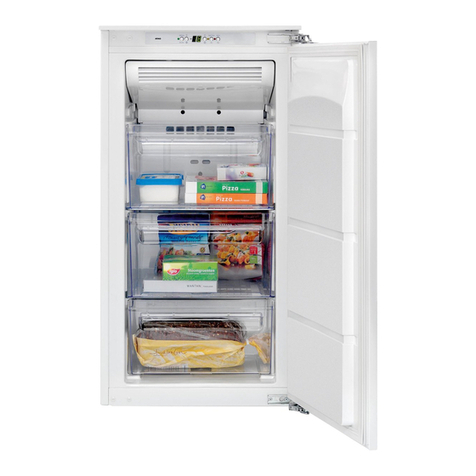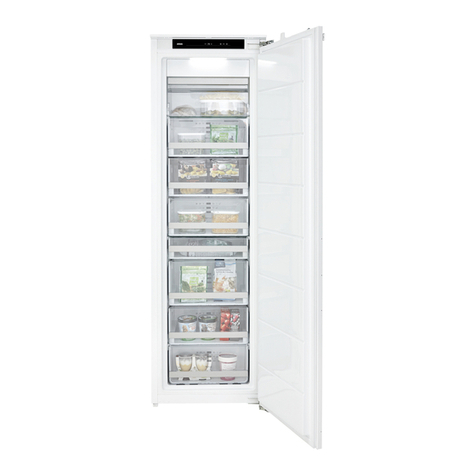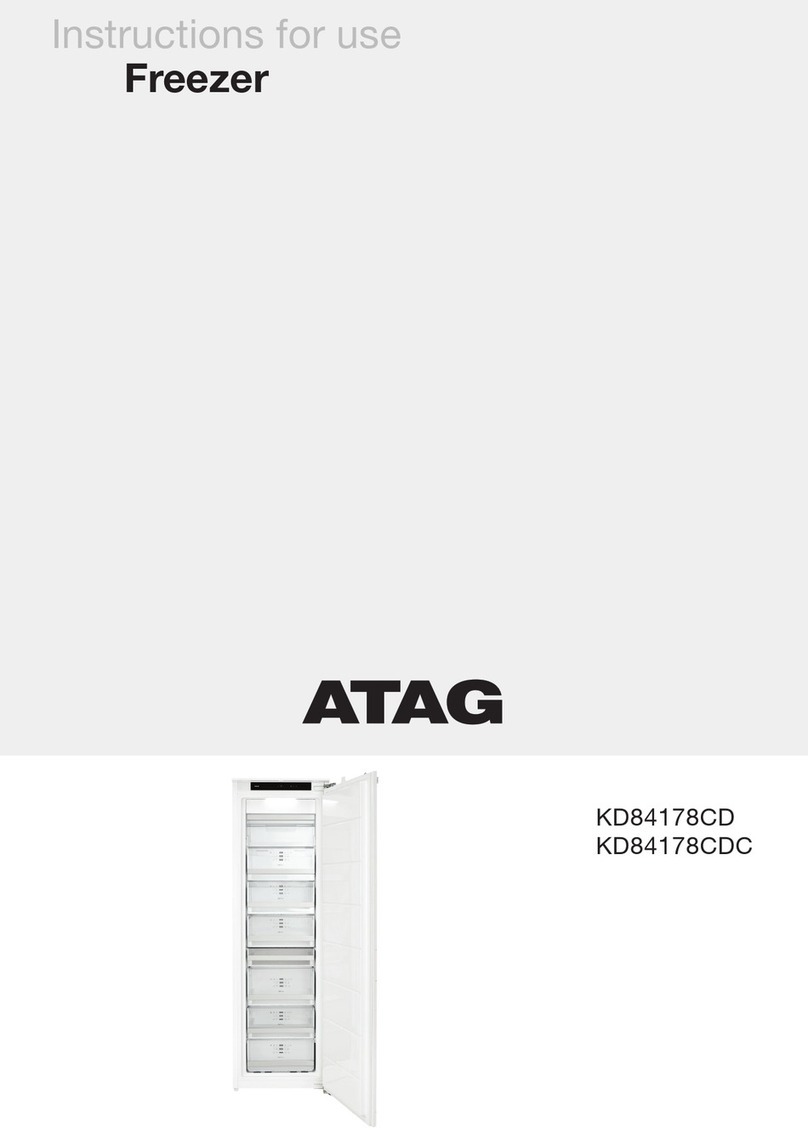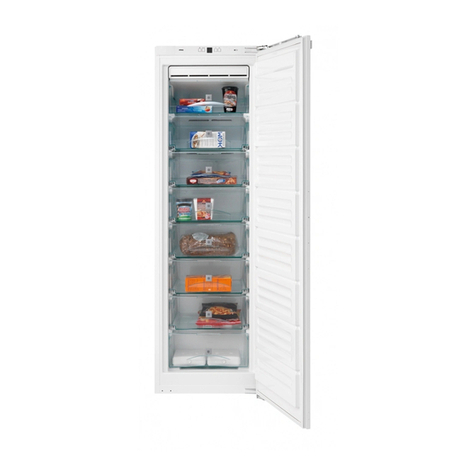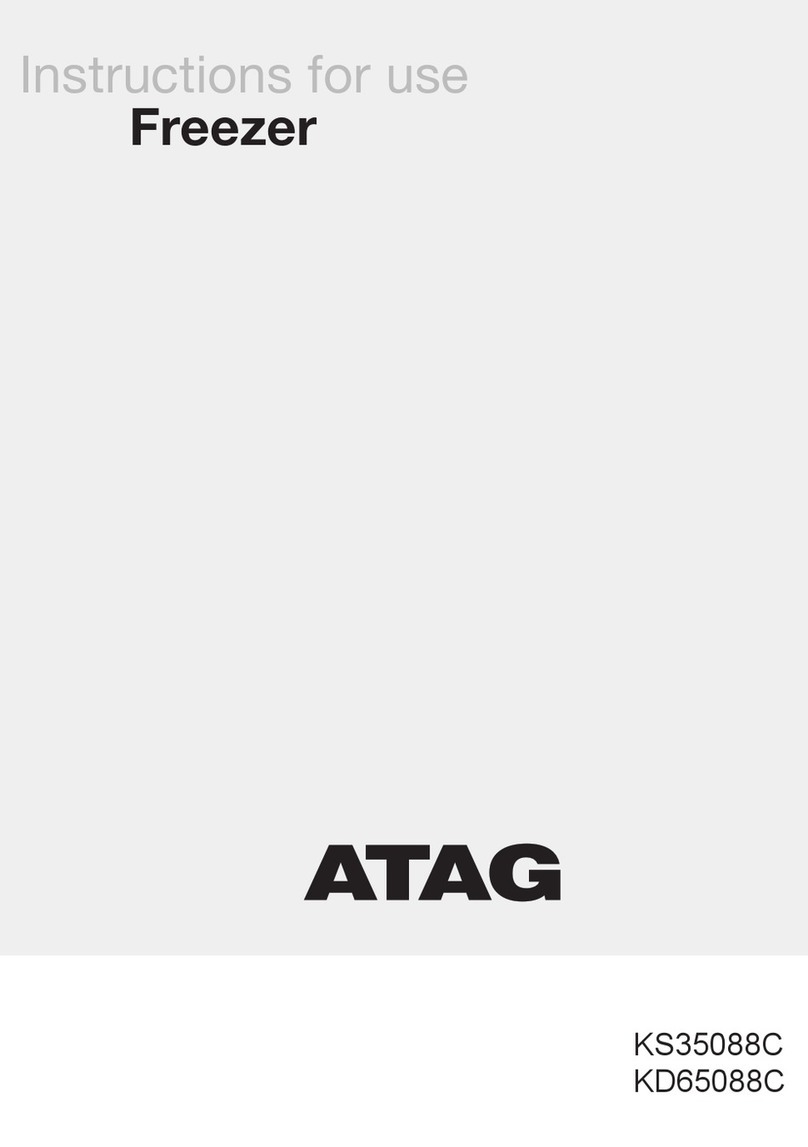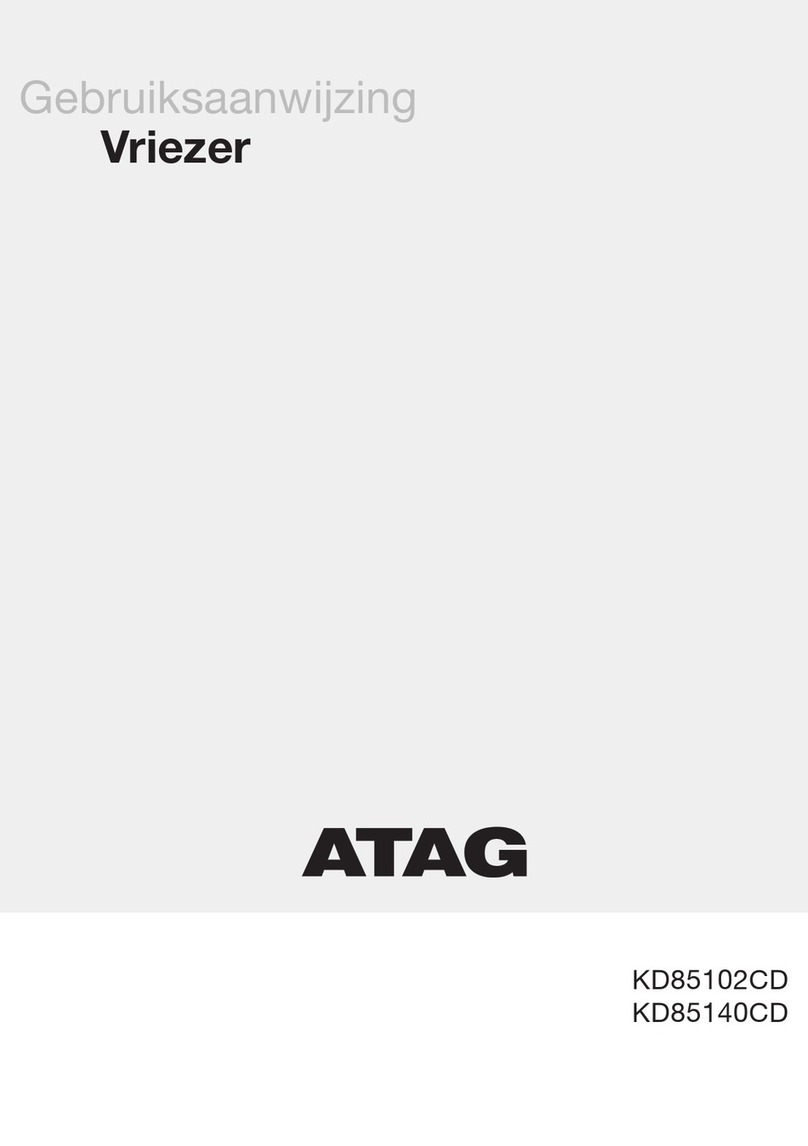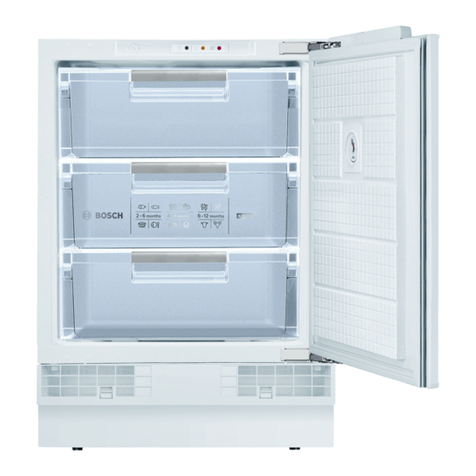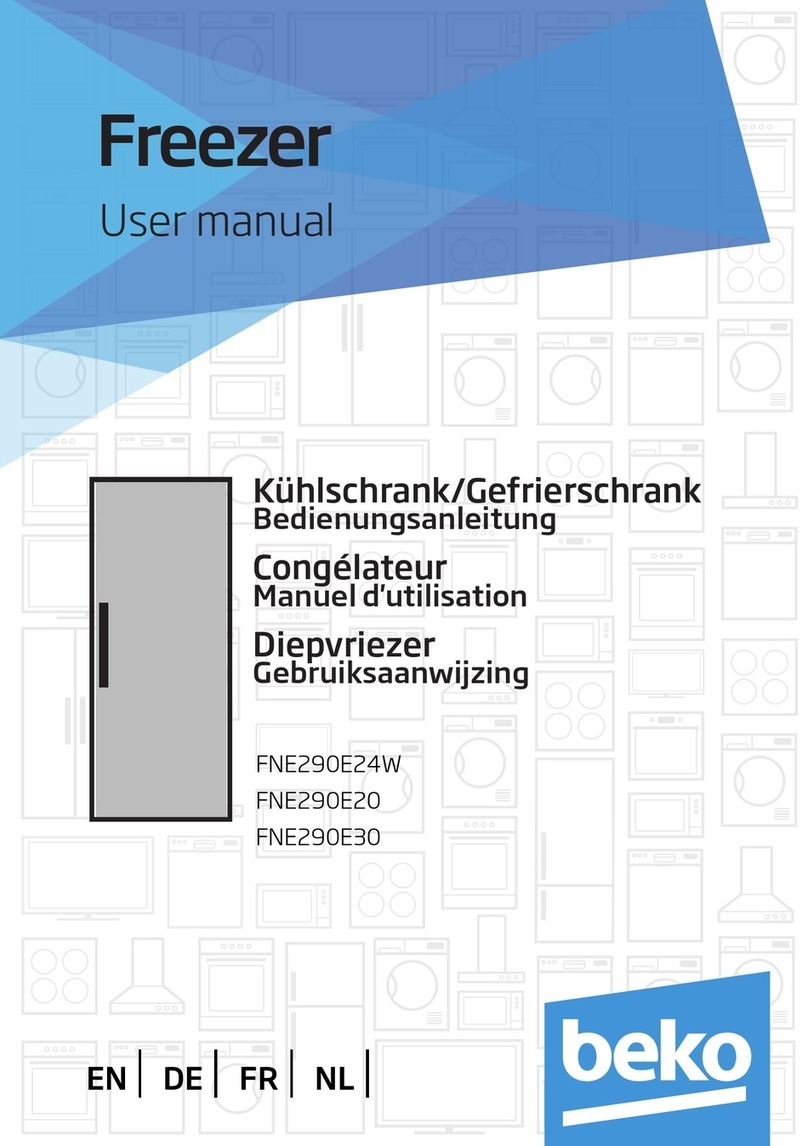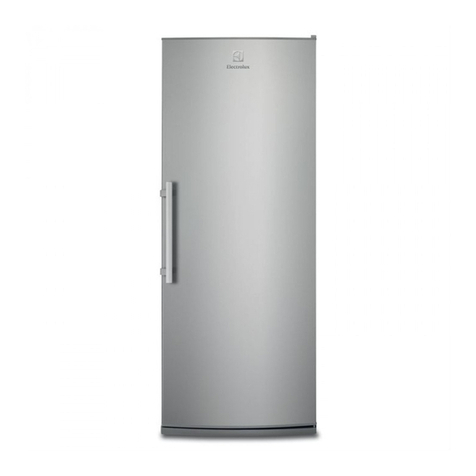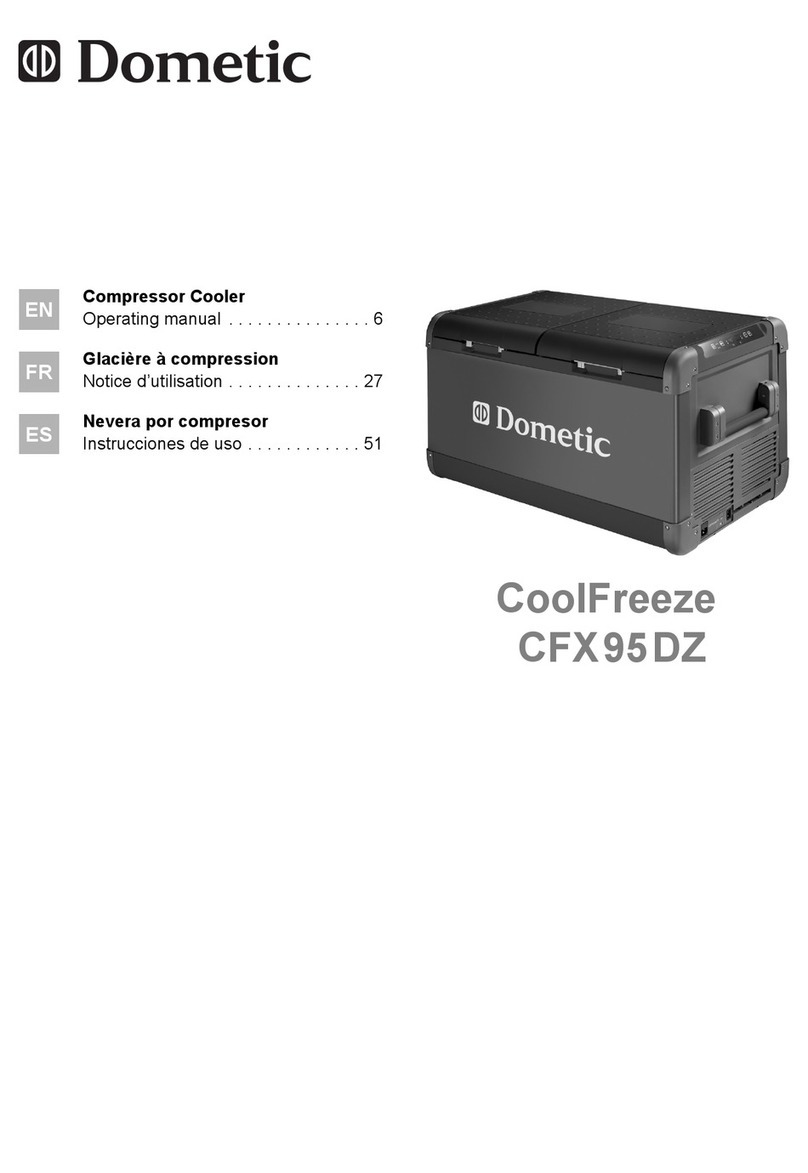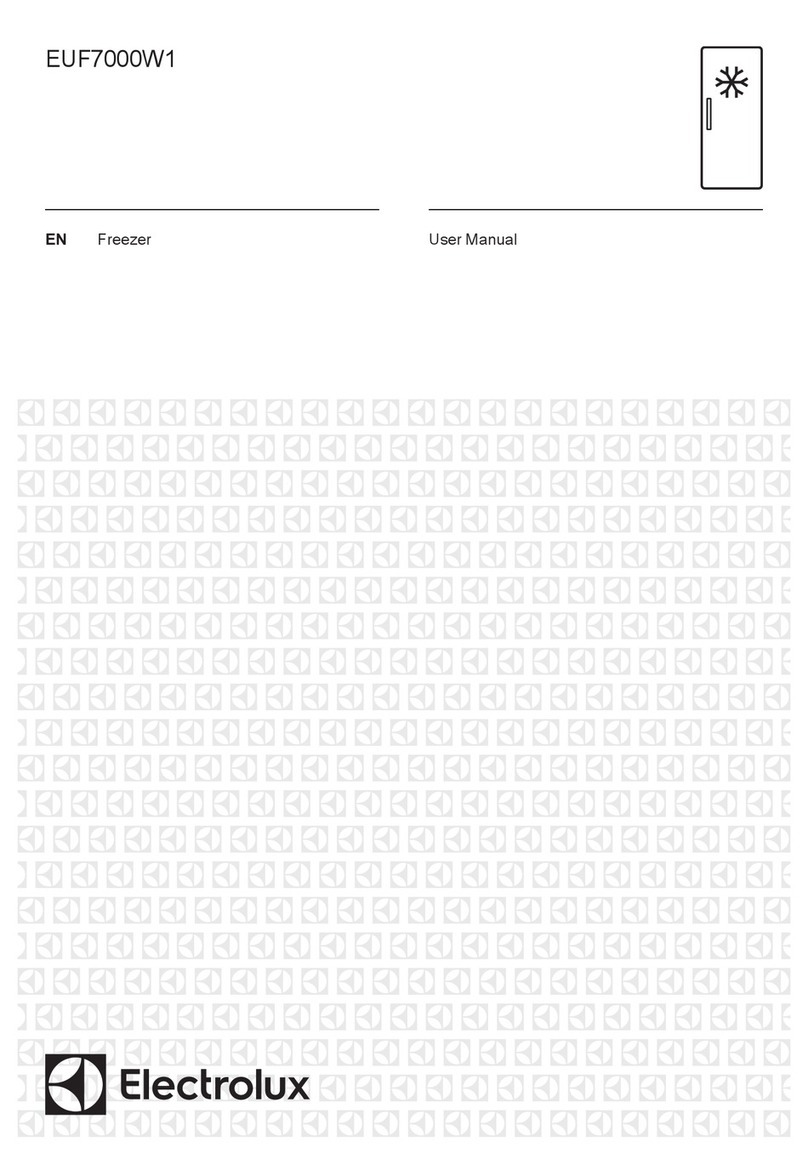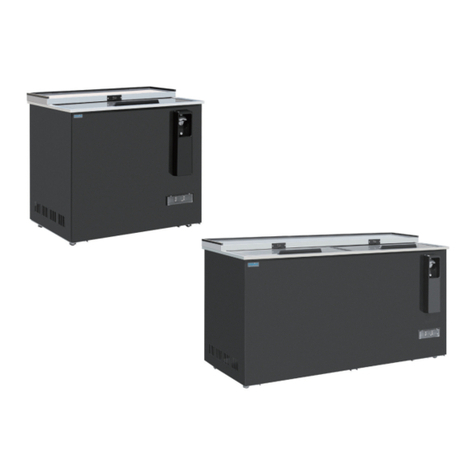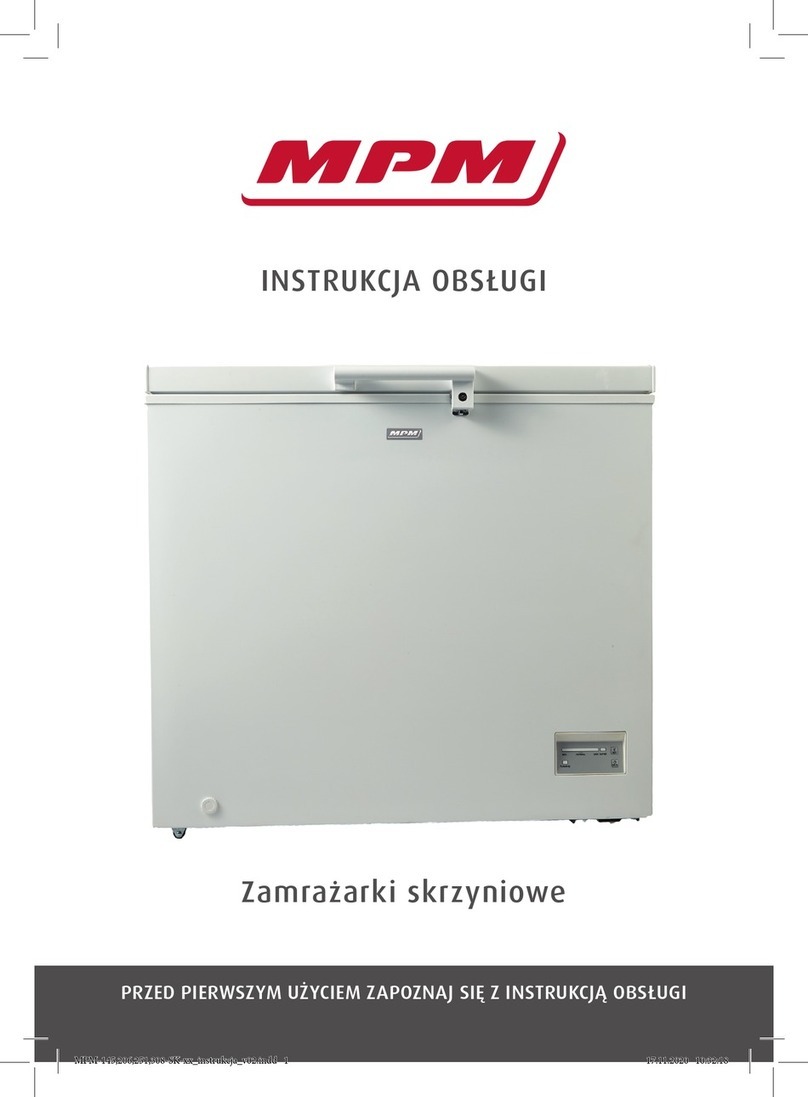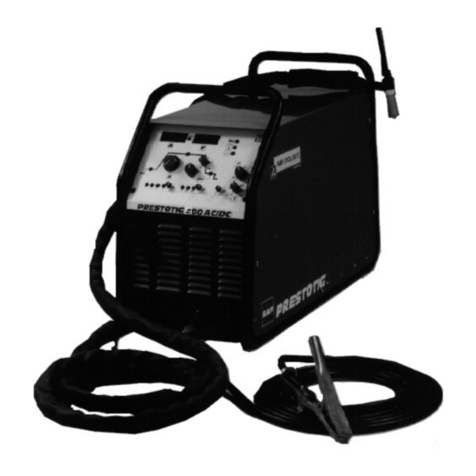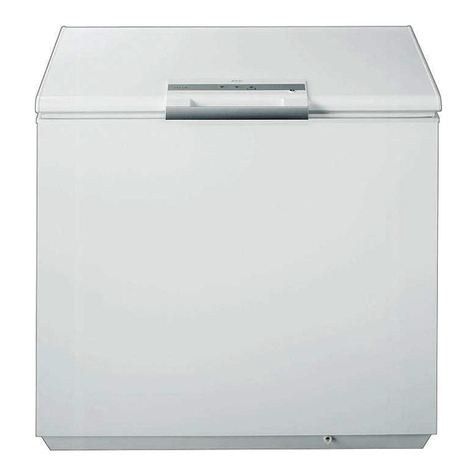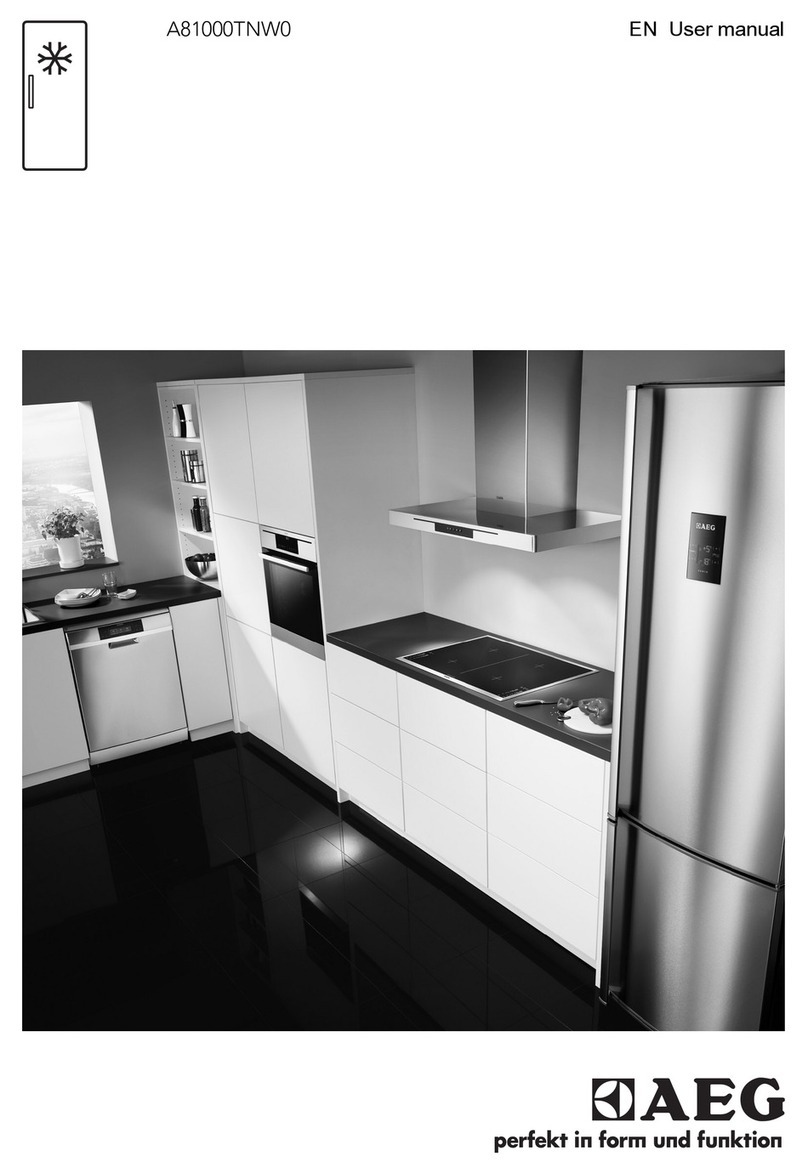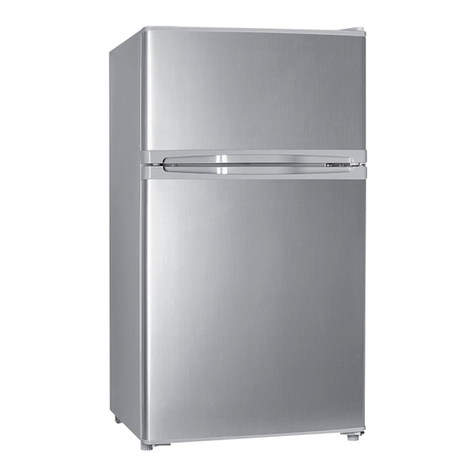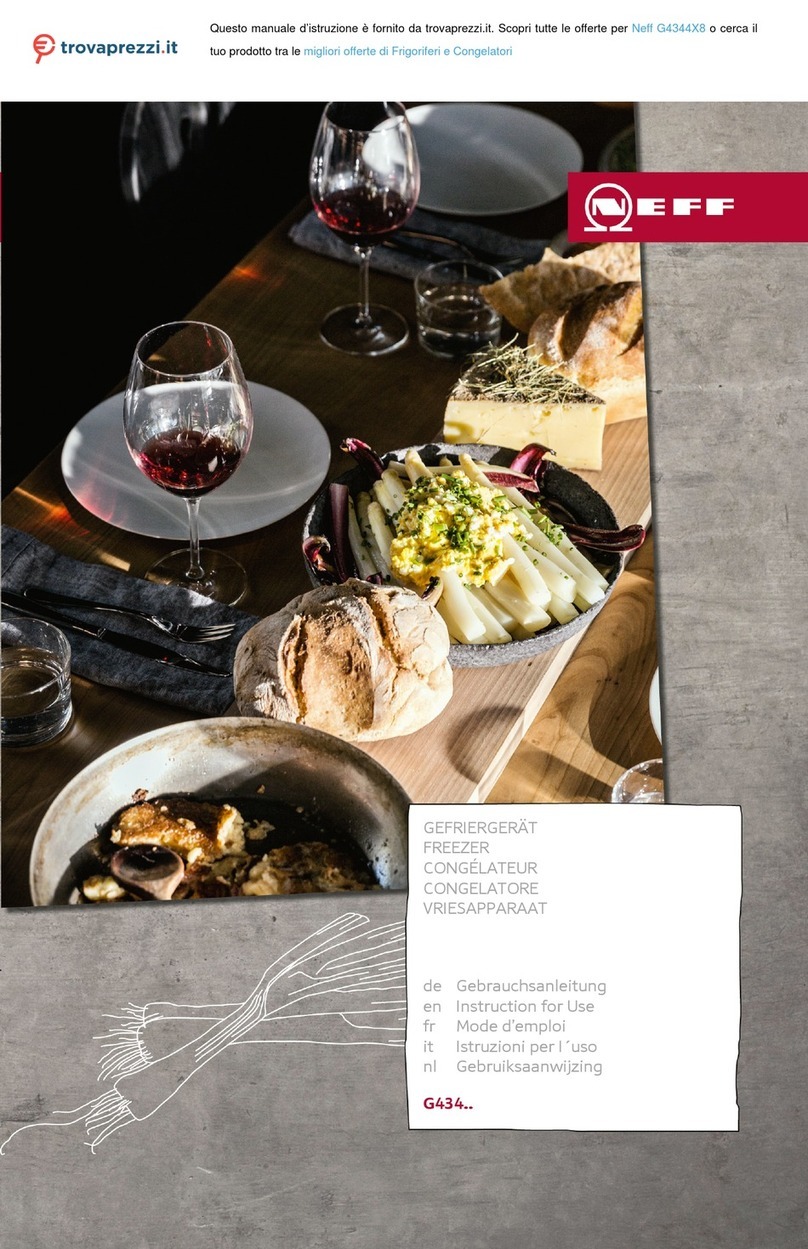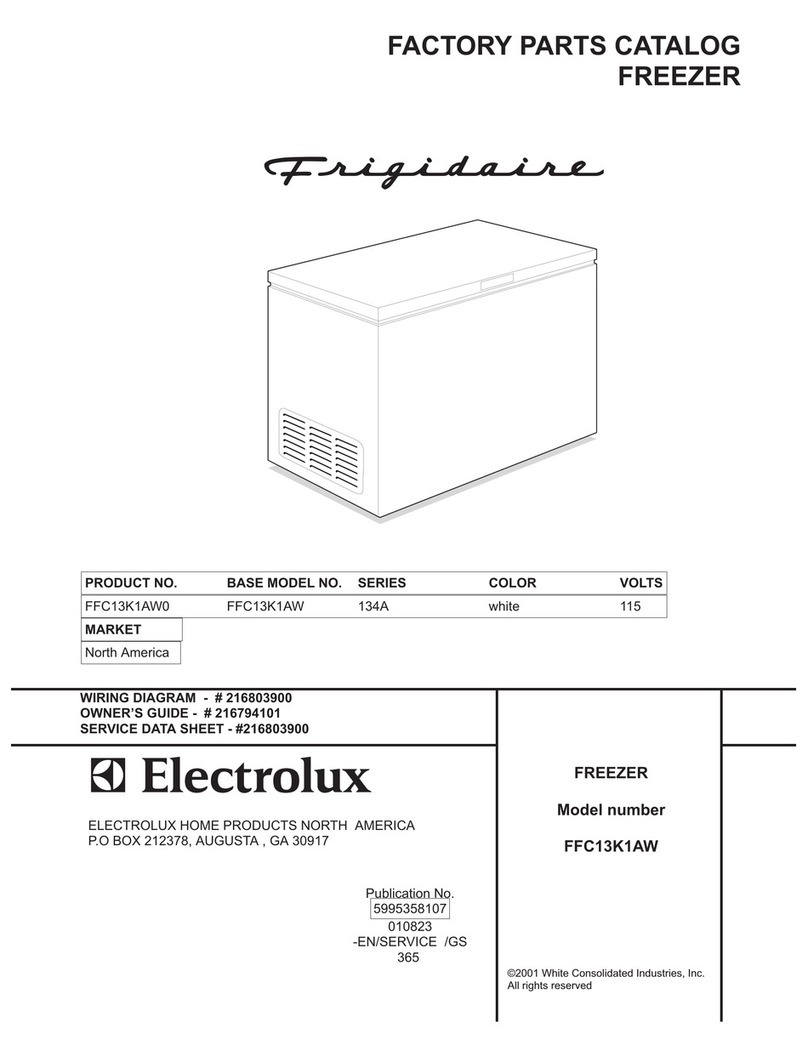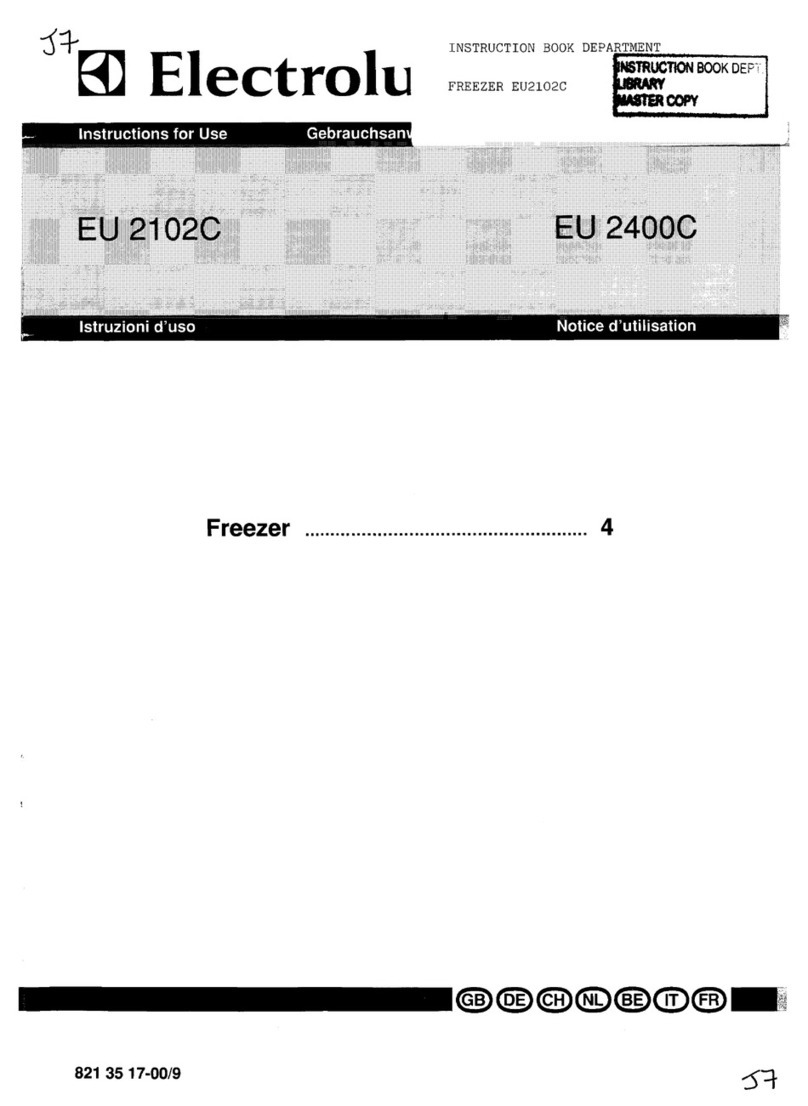
EN 4
Before using the appliance for the first
time
Before connecting the appliance to the
power mains, please read carefully the
instructions for use which describe the
appliance and its correct and safe use.
The instructions apply to several appliance
types/models; thus, settings or equipment
may be described herein which is not
available in your appliance. We recommend
saving this instruction manual for future
reference and attach it to the appliance if it
is sold in the future.
The instruction manual includes the NO
FROST version/model of the freezer which is
fitted with a fan and in which the defrosting
process is automatic (only with some models).
Check for any damage or irregularities on
your appliance. If you find your appliance is
damaged, notify the retailer from which you
have purchased the appliance.
Before connecting the appliance to the
power mains, let the appliance rest in a
vertical position for a minimum of 2 hours.
This will reduce the possibility of operation
faults due to the effect of transport on the
cooling system.
INTRODUCTION
Safety instructions
